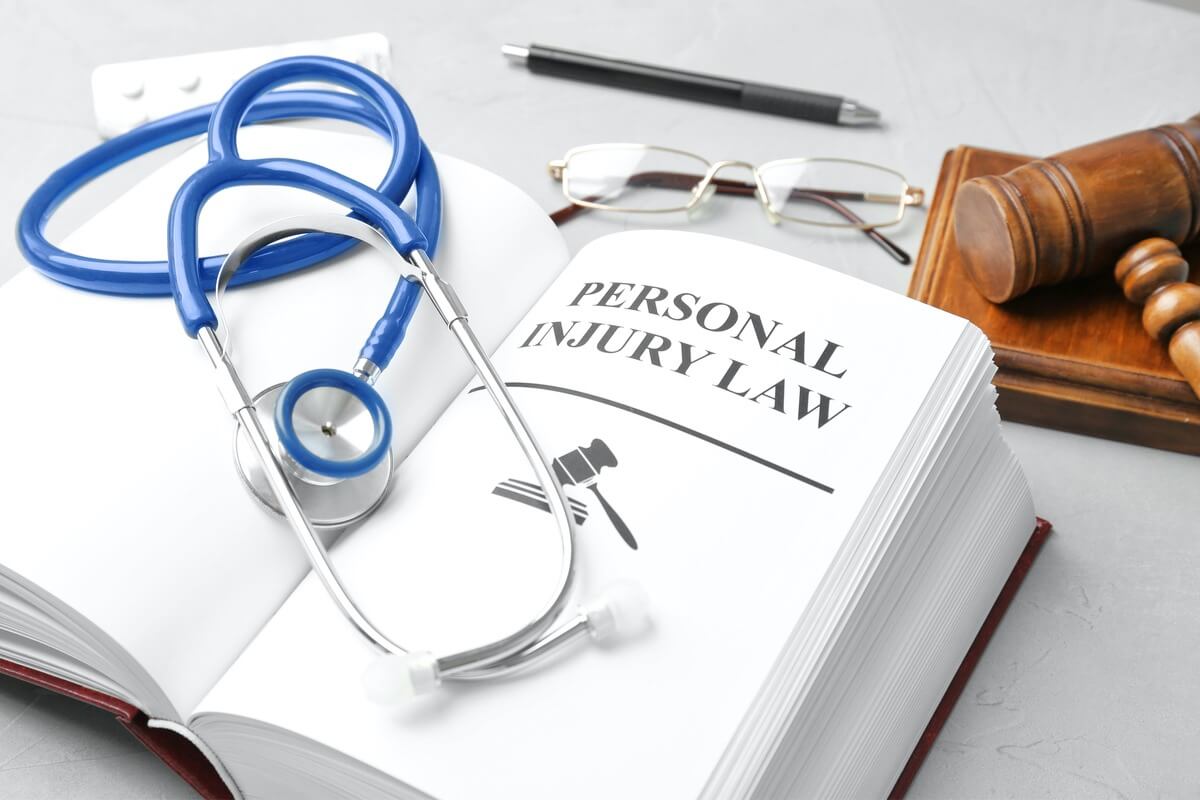
Partner at AKD Lawyers
Practice Areas: Personal Injury

Catastrophic injuries are not like ordinary injuries you can shake off or recover from quickly. They’re life-changing events that affect every aspect of your life and often require ongoing medical care and support. If you or someone you love has experienced a catastrophic injury, you know how devastating these injuries can be—physically, emotionally, and financially.
But there’s good news—you don’t have to go through this alone. Understanding your legal rights and how the system works is crucial to getting the compensation you need and deserve. In this article, we’ll clearly explain what catastrophic injuries are, common types of devastating injuries, Louisiana laws regarding these injuries, and essential steps you should follow immediately after an accident. We’ll also discuss how compensation is determined and, significantly, how an experienced catastrophic injury lawyer can help protect your future.
What is a Catastrophic Injury?
A catastrophic injury is typically defined as a severe, life-altering injury that permanently prevents someone from performing meaningful work or daily activities without assistance. Unlike minor injuries, catastrophic injuries lead to long-term disability, chronic pain, ongoing medical care, and substantial changes in lifestyle and quality of life.
These injuries often affect critical body functions and can result in permanent disabilities such as Paralysis, blindness, cognitive impairment, or loss of limbs.
Unfortunately, the impact of catastrophic injuries isn’t limited just to physical consequences. Victims and their families often face enormous emotional and financial burdens due to the cost of ongoing care, loss of income, and reduced quality of life.
The journey after a catastrophic injury can be overwhelming, but knowing your rights can make a significant difference.
Common Types of Catastrophic Injuries
Understanding the most common types of catastrophic injuries can help you recognize their seriousness and take immediate action if they occur.
Traumatic Brain Injuries (TBI)
Traumatic brain injuries occur when the head suffers a violent blow, bump, or penetrating injury. Car accidents, falls, sports injuries, and assaults are the most common causes of TBIs. Victims may experience confusion, headaches, memory loss, dizziness, nausea, trouble speaking clearly, and emotional or behavioral changes.
“Every year, approximately 61,000 traumatic brain injury-related deaths occur in the United States, highlighting the severe consequences and lifelong impacts of these injuries.” — Centers for Disease Control and Prevention (CDC)

Spinal Cord Injuries
Spinal cord injuries result from severe damage to the spinal cord, often caused by motor vehicle crashes, falls, or sports injuries. The outcome can be devastating, causing permanent Paralysis, loss of sensation, impaired bowel or bladder control, and chronic pain. Victims often require lifelong medical care, rehabilitation, and assistance with daily living activities.
Severe Burn Injuries
Fires, explosions, chemical exposure, or electrical accidents typically cause burn injuries. Severe burns can lead to permanent scarring, disfigurement, infections, nerve damage, and even death. Survivors usually face extensive treatment, multiple surgeries, and significant psychological trauma due to altered physical appearance.
Loss of Limb (Amputation)
Amputation often results from catastrophic accidents such as car crashes, workplace injuries, or severe infections. Losing a limb dramatically affects a person’s independence and overall quality of life. Victims may require prosthetics, rehabilitation therapy, and lifelong care to adapt to their new physical limitations.
Eye Injuries (Vision Loss)
Severe eye injuries can occur due to chemical burns, flying debris, or blunt trauma. Permanent loss of vision drastically affects daily activities, employment opportunities, independence, and overall quality of life, creating lifelong challenges and the need for adaptive support and resources.
Catastrophic Injury Claims: Understanding Your Legal Rights in Louisiana
If you’re dealing with catastrophic injuries in Louisiana, it’s crucial to understand the state’s legal framework clearly. Louisiana laws allow injured victims to seek compensation for economic and non-economic damages, even if they’re partially at fault.
“Under Louisiana Civil Code Art. 2323, victims can recover damages even if partially at fault, but compensation is reduced proportionally to their percentage of fault.” — Louisiana Law.
Economic damages include medical bills, rehabilitation costs, lost wages, and loss of earning capacity. Non-economic damages include pain, suffering, emotional distress, and loss of enjoyment of life.
Given the complexity of catastrophic injury claims, proving liability clearly and effectively is crucial to securing fair compensation.
Steps to Take Immediately After Sustaining a Catastrophic Injury
After experiencing a catastrophic injury, immediate action can significantly influence your case and overall recovery. First, seek immediate medical attention to ensure your safety and begin documenting your injuries thoroughly.
Next, gather evidence from the accident scene, such as photographs and witness statements.
Report the incident promptly to authorities and avoid making any statements or accepting settlements from insurance companies without first consulting an experienced catastrophic injury attorney.
Legal guidance at this early stage can protect your rights and strengthen your claim.
Calculating Damages and Compensation in Catastrophic Injury Cases
Determining the right amount of compensation in catastrophic injury cases is complex because it must cover both current and future costs. Attorneys and experts analyze medical records, treatment plans, life-care costs, rehabilitation expenses, and the loss of future earning potential.
Non-economic damages, such as emotional distress and pain and suffering, are also carefully considered. Professional legal help is essential to navigate these complexities accurately.
The table below illustrates typical costs associated with different catastrophic injuries, underscoring the importance of comprehensive compensation:
| Type of Injury | Common Causes | Long-term Impact | Average Cost of Lifetime Care (General Estimates) |
| Traumatic Brain Injury | Falls, vehicle crashes, assault | Cognitive impairments, disability | $1 million – $4 million |
| Spinal Cord Injury | Car accidents, sports injuries | Paralysis, chronic pain | $1 million – $5 million |
| Severe Burns | Fire, chemicals, explosions | Disfigurement, infections | $300,000 – $2 million |
| Loss of Limb | Severe accidents, infection | Permanent disability | $500,000 – $2 million |
How a Catastrophic Injury Lawyer Can Help Your Case
Hiring an experienced catastrophic injury lawyer significantly improves your chance of obtaining maximum compensation. Your attorney can thoroughly investigate your case, collect evidence, manage insurance claims, negotiate favorable settlements, and represent you in court.
The complexity of these cases demands specialized knowledge and extensive experience to ensure your rights and interests are fully protected.

FAQs Section
What qualifies an injury as catastrophic?
An injury is catastrophic if it results in permanent disabilities, significantly affecting the victim’s ability to perform daily activities and maintain gainful employment. Such injuries require lifelong care, drastically changing the victim’s quality of life and independence.
How much compensation can I expect for a catastrophic injury in Louisiana?
Compensation varies based on severity, medical expenses, lost income, and pain and suffering. Typical settlements range significantly but often involve substantial financial recoveries to cover lifetime medical costs, rehabilitation, and loss of earnings.
Can I still recover compensation if I was partially at fault for my catastrophic injury?
Yes. Louisiana follows comparative fault laws, allowing victims to claim damages even if partially at fault, though their percentage of fault will reduce compensation.
What is the deadline for filing a catastrophic injury claim in Louisiana?
Louisiana has a one-year statute of limitations (prescription) for personal injury claims, including catastrophic injuries. Acting promptly is essential to avoid losing your right to compensation.
Do I need a catastrophic injury lawyer to file my claim?
While not legally required, hiring an experienced catastrophic injury lawyer significantly increases your chances of maximizing compensation due to the complexity of these claims. A skilled lawyer ensures your rights and interests are fully protected.
Conclusion
Catastrophic injuries change lives forever, profoundly impacting victims and their families. Understanding your rights and the legal system is crucial to getting fair compensation. At Alvendia, Kelly & Demarest, we understand these challenges and are committed to helping you recover physically, emotionally, and financially.
Don’t navigate this difficult journey alone—contact us today for compassionate, expert legal assistance to secure your rightful compensation and begin rebuilding your life.
Categories

In 2003, after being dissatisfied with the quality of legal care for victims of car accidents, Roderick ‘Rico’ Alvendia sought to establish a new firm focused on providing high-quality legal services to aid injured victims and their families. J. Bart Kelly, sharing Rico’s passion for upholding justice, joined the firm later that year, and established a partnership.






